Nigeria
Humanitarian workers and locals are warning of worsening hunger and malnutrition levels among internally displaced people in northeastern Nigeria amid the Boko Haram conflict that has raged on in the region since 2009.
While aid groups such as the World Food Program are assisting the displaced people with food and other essentials, many others remain out of the reach of aid, mostly trapped in hot spots and hard-to-reach areas.
Boko Haram, Nigeria’s homegrown jihadi rebels, launched its insurgency in 2009 to establish Islamic Shariah law in the country.
At least 35,000 people have been killed and 2.1 million people displaced as a result of the extremist violence, according to U.N. agencies in Nigeria.
During her visit to Nigeria, Cindy McCain, Executive Director of the World Food Program, visited Damasak, one of the communities close to the frontlines in the conflict-hit region, and met with humanitarian workers and locals receiving assistance from the U.N. food agency.
"How do I take food from the hungry and give it to the starving? Because that's the choices I have to make now,” said McCain.
She also met with government leaders in Borno and assured authorities of continued support from the U.N. food agency.





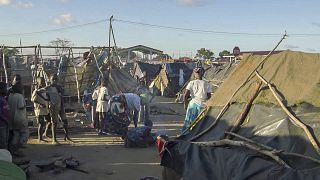
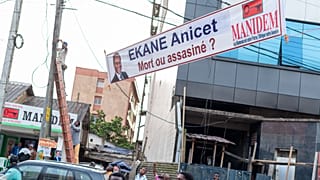

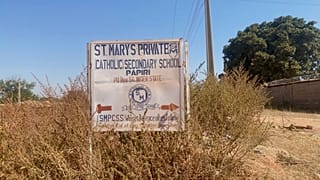
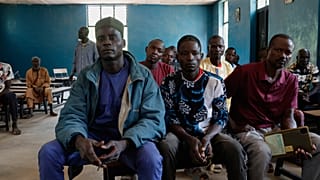
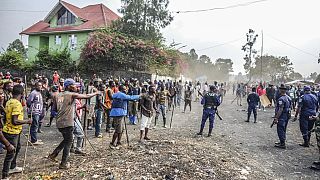
01:11
Hundreds protest in Spain in support of Christians kidnapped in Nigeria
11:17
Simandou iron ore: Guinea’s mega project set to transform global mining [Business Africa]
01:45
Nigerian parents of abducted children say they are being kept in dark
02:00
UN says food distribution in Sudan improving but areas remain cut off
01:22
Nigeria security chiefs report progress in rescuing kidnapped students
01:43
Nigeria: Families of missing children frustrated over frequent school abductions